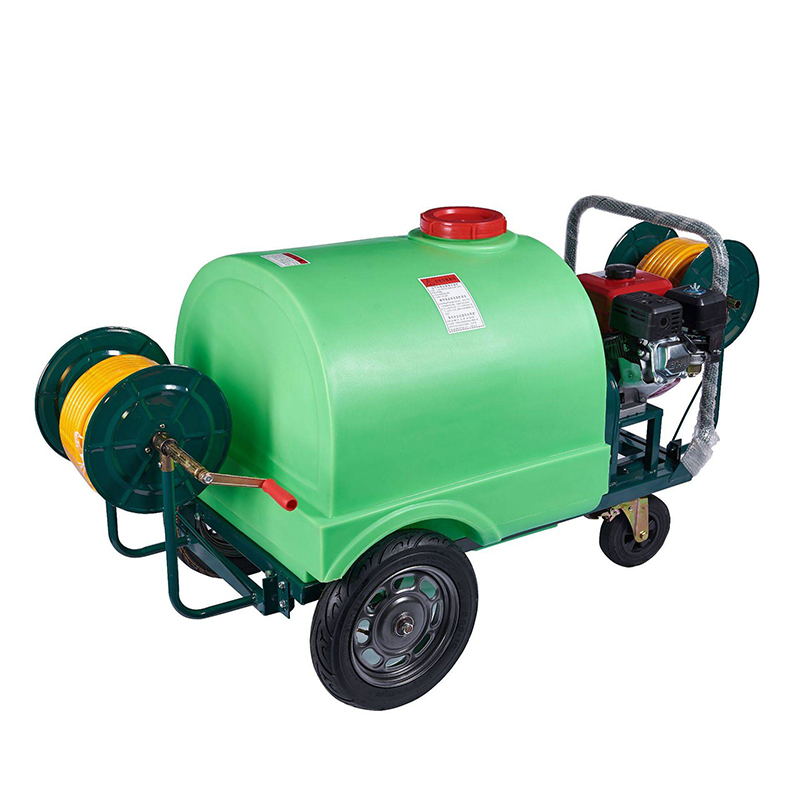Measures to remediate soil acidification in tea gardens
As the tea garden planting years and planting area increase, tea garden machines play an increasingly important role in tea planting. The problem of soil acidification in tea gardens has become a research hotspot in the field of soil environmental quality. The soil pH range suitable for the growth of tea trees is 4.0~6.5. A too low pH environment will inhibit the growth and metabolism of tea trees, affect soil fertility, reduce tea yield and quality, and seriously threaten the natural ecological environment and sustainable development of tea gardens. Introducing how to restore tea gardens from the following aspects
1Chemical improvement
When the soil pH value is less than 4, it is recommended to consider using chemical measures to improve the soil. Currently, dolomite powder is mostly used to increase soil pH. Dolomite powder is mainly composed of calcium carbonate and magnesium carbonate. After using a farm cultivator machine to loosen the soil, sprinkle the stone powder evenly. After being applied to the soil, carbonate ions react chemically with acidic ions, causing the acidic substances to be consumed and the soil pH to increase. In addition, a large amount of calcium and magnesium ions can increase the cation exchange capacity of the soil and significantly reduce the exchangeable aluminum content of the soil. When the application amount of dolomite powder is greater than 1500 kg/hm², the problem of soil acidification in tea gardens is greatly improved.
2Biological improvement
Biochar will be obtained by drying the tea trees trimmed by a tea pruning machine and burning and cracking them under high temperature conditions. As a special soil conditioner, biochar has many oxygen-containing functional groups on its surface, which are mostly alkaline. It can improve the acidity and alkalinity of farmland soil, increase the cation exchange capacity, reduce the content of exchangeable acids, and improve the soil’s ability to retain water and fertilizer. Biochar is also rich in mineral elements, which can promote soil nutrient cycling and plant growth and development, and change the community structure of soil microorganisms. Applying 30 t/hm² of bio-black carbon can greatly improve the acidification environment of tea garden soil.
3 organic improvements
Organic fertilizer is processed from organic matter, eliminating toxic substances and retaining a variety of beneficial substances. Acidified soil improvement can use neutral or slightly alkaline organic fertilizers to correct the soil’s acidic environment and maintain a long-term slow release of fertility while providing a variety of nutrients. However, the nutrients contained in organic fertilizers are difficult to be used directly by plants. After microorganisms reproduce, grow and metabolize, they can slowly release organic matter that can be absorbed by plants, thus improving the physical and chemical properties of the soil. Applying organic-inorganic composite acidifying amendments to acidic soil in tea gardens can effectively increase soil pH and soil fertility, supplement various base ions and enhance soil buffering capacity.
4 new improvements
Some new types of repair materials are beginning to emerge in soil repair and improvement. Microorganisms play an important role in soil nutrient recycling and affect the physical and chemical properties of soil. Applying microbial inoculants to tea garden soil using a sprayer can improve soil microbial activity, increase soil microbial abundance, and significantly improve various fertility indicators. Bacillus amyloides can improve the quality and yield of tea, and the best effect is achieved when the total number of colonies is 1.6 ×108 cfu/mL. High molecular polymer is also an effective new soil property improver. Macromolecular polymers can increase the number of soil macroaggregates, increase porosity, and improve soil structure. Applying polyacrylamide to acidic soil can increase the pH value of the soil to a certain extent and better control soil properties.
5. Reasonable fertilization
Indiscriminate application of chemical fertilizers is one of the important causes of soil acidification. Chemical fertilizers can quickly change the nutrient content of tea garden soil. For example, unbalanced fertilization can lead to soil nutrient imbalances that can easily exacerbate soil reaction conditions. In particular, long-term unilateral application of acid fertilizers, physiological acid fertilizers or nitrogen fertilizers will lead to soil acidification. Therefore, using a fertilizer spreader can spread fertilizer more evenly. Tea gardens should not emphasize the sole application of nitrogen fertilizer, but should pay attention to the combined application of nitrogen, phosphorus, potassium and other elements. In order to balance soil nutrients and prevent soil acidification, according to the absorption characteristics of fertilizers and soil characteristics, it is advisable to use soil testing formula fertilization or mix and apply multiple fertilizers.


